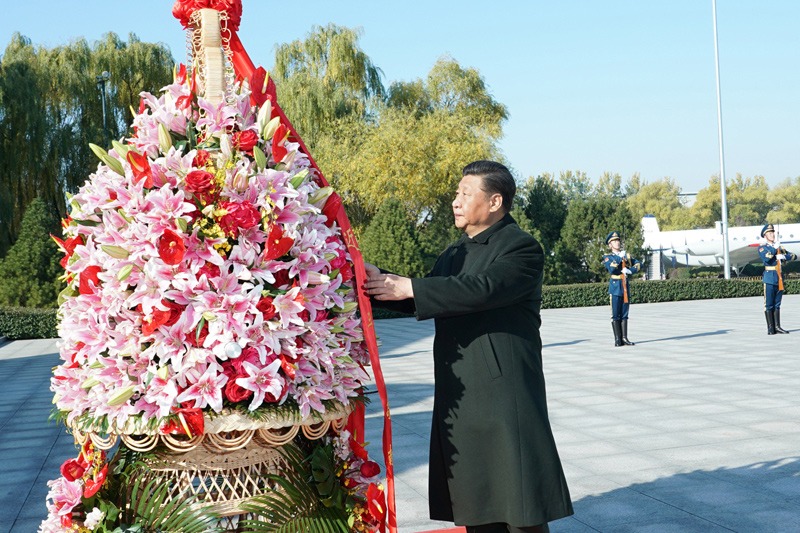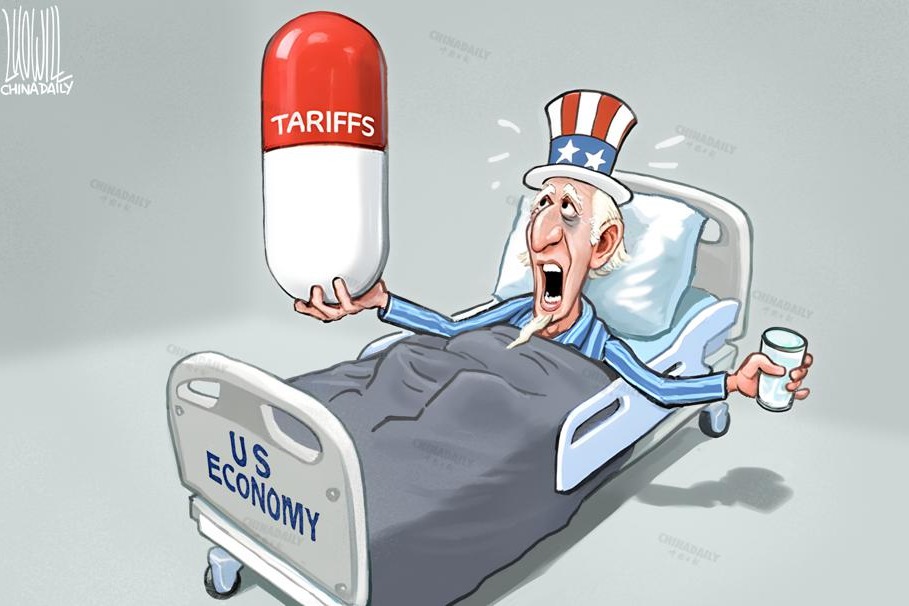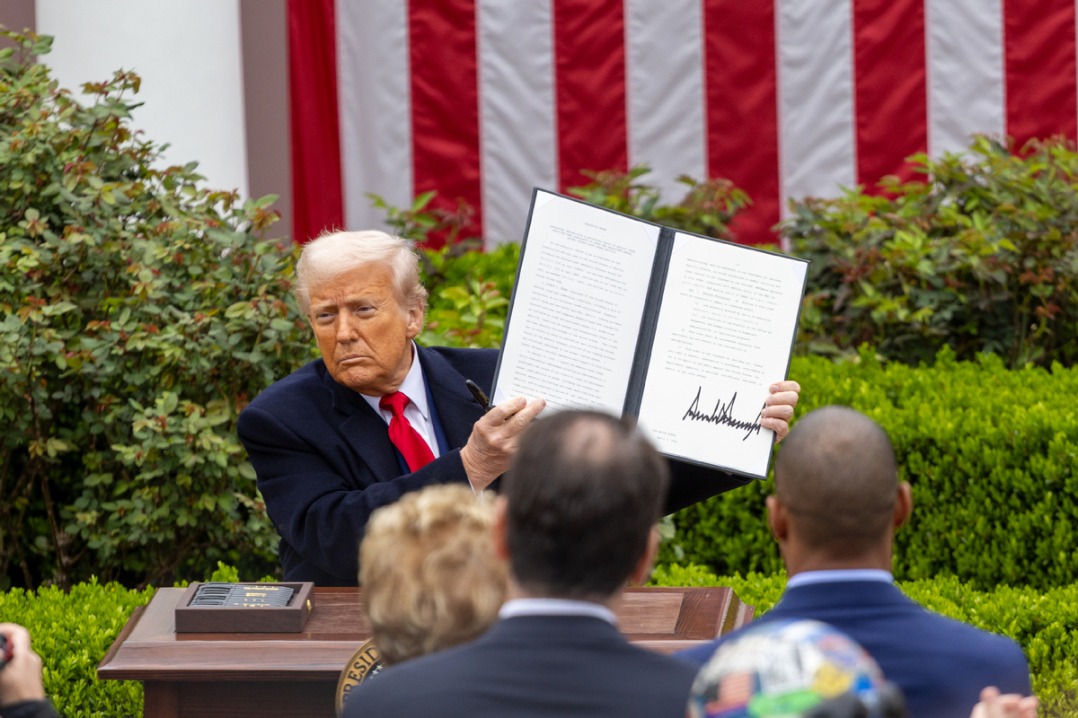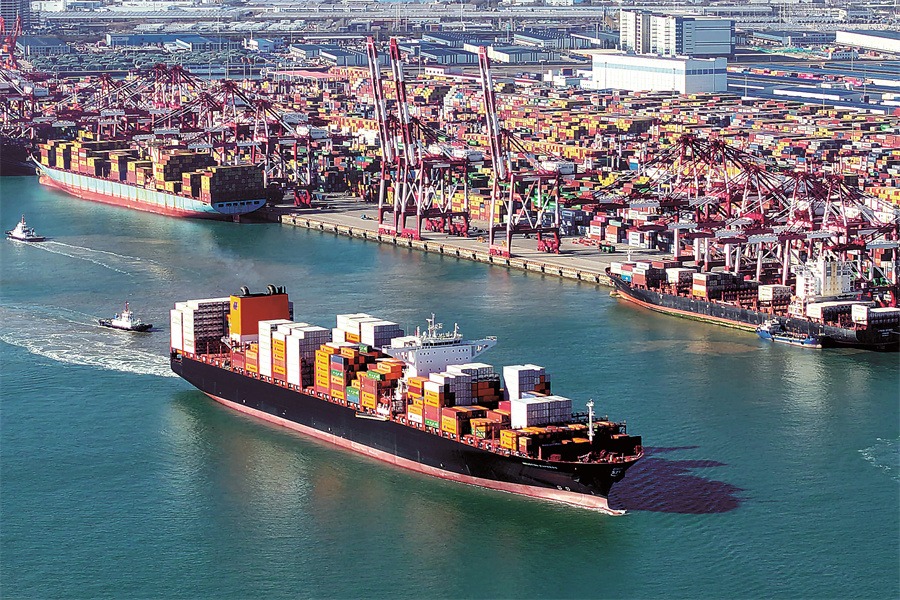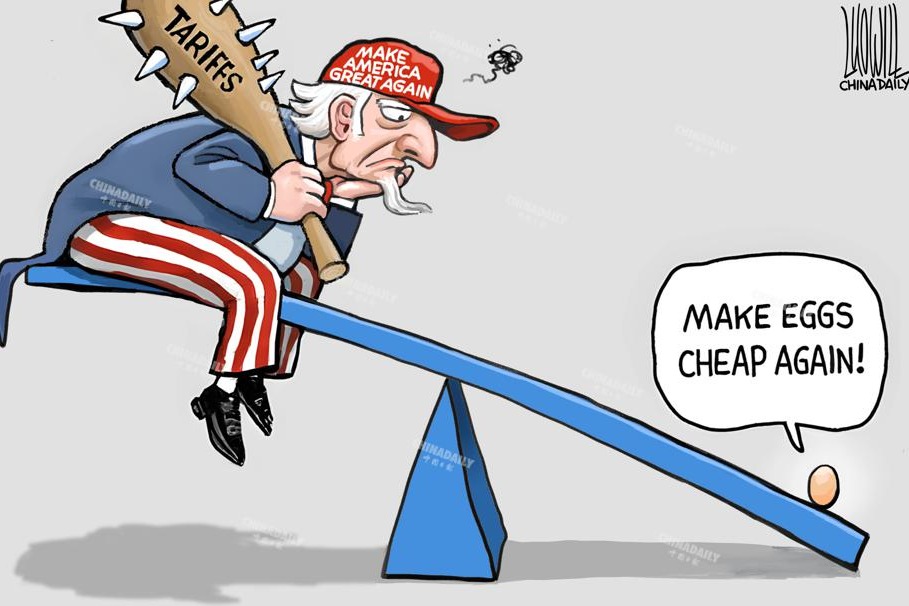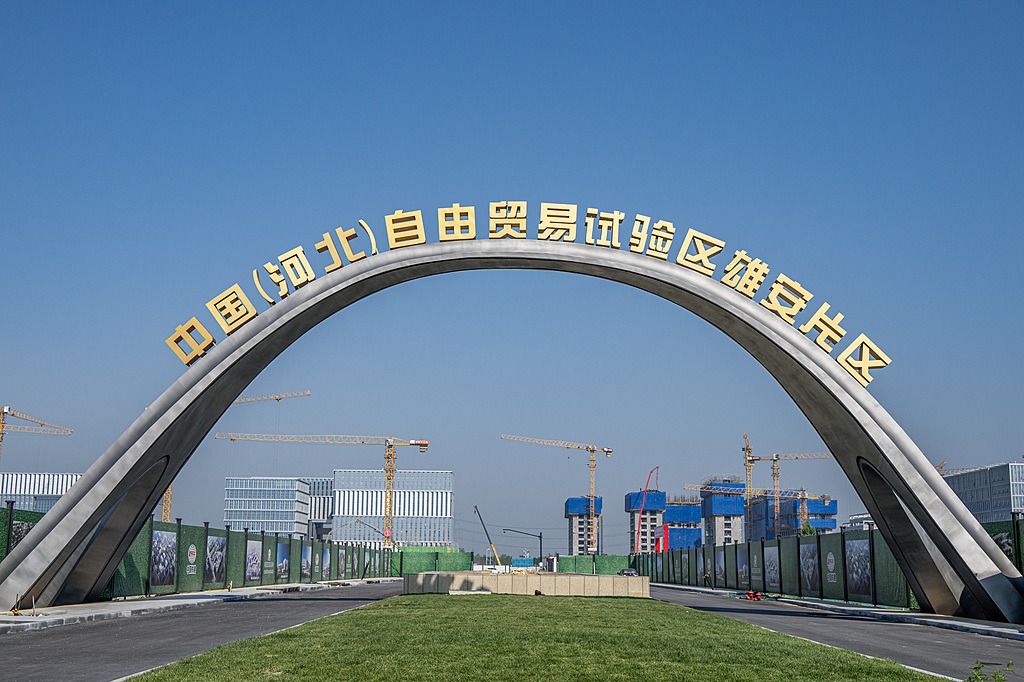China resilient in facing US' global 'tariff war'


On Saturday, the Chinese government released its position opposing the US' abuse of tariffs. Additionally, on Friday, China announced its decision to levy an additional 34 percent tariff on all imports from the United States, effective from April 10. This move serves as a countermeasure against US tariff threats.
On April 2, US President Donald Trump signed an executive order declaring a national emergency on grounds of "national security" concerns to address the persistent and vast US trade deficit. By imposing a 10 percent base tariff on global imports and additional differentiated tariffs on key economies—including China and the European Union—Trump's administration has escalated its trade policy into what can only be described as a systemic trade war. Unlike the selective sanctions of previous administrations, this new approach transforms trade disputes into an all-encompassing economic confrontation, challenging the post-war, WTO-based multilateral trade order.
US hegemony threatens world trade
Trump's comprehensive tariff policy marks a fundamental shift from targeted measures to a full-scale, non-discriminatory imposition of tariffs. The policy, grounded in the International Emergency Economic Powers Act (IEEPA) and the National Emergencies Act (NEA), originally designed for wartime or major security crises, now serves as a vehicle for unilateral trade retribution.
By labeling the US trade deficit as a "national security threat", the administration has bypassed the traditional legislative process and expanded executive power to an unprecedented degree. This move not only undermines the system of checks and balances but also sets a dangerous precedent for future administrations, which might similarly invoke national security to recalibrate tariffs at will.
Moreover, the policy blatantly criticizes the WTO's "Most Favoured Nation” (MFN) principle by arguing that it allows countries like China and India to maintain high tariffs while enjoying low US import barriers. This narrative effectively delegitimizes the multilateral trade framework and paves the way for a new regime where American unilateralism dictates global trade rules.
The policy sets forth stringent conditions for tariff exemptions in critical sectors like semiconductors, key minerals and pharmaceuticals. Specifically, only products classified as "non-Chinese" are eligible for tariff relief. This compels multinational corporations to procure materials from the US or its allies, thereby cutting longstanding supply chain ties. Already, prominent industry leaders such as TSMC and ASML have signaled their intent to reassess their investments in China, underscoring the policy's capacity to expedite technological decoupling.
What's more, the order leverages the USMCA framework by penalizing products that include Chinese components, thereby pressuring allies like Canada and Mexico to restructure their production processes. For example, Mexican automotive manufacturers face additional tariffs if their vehicles incorporate Chinese-made batteries. This "friend-shoring" strategy coerces close allies into aligning with US economic objectives, even at the cost of disrupting their established supply chain networks.
China's resilience: Domestic demand, diversified trade
Trump's tariff strategy extends beyond immediate trade retribution; it is an explicit challenge to the global economic order. By weaponizing tariffs alongside non-tariff barriers — such as technical trade regulations, discriminatory subsidies, restrictive labor policies and data localization mandates — the US is not merely levying taxes but is redefining global trade norms. This move is intended to coerce trade partners into renegotiating bilateral terms under an American-dominated framework and to create a "value-based" economic alliance centered around shared political ideals.
However, this aggressive approach has far-reaching repercussions. It risks fragmenting the global economy into competing blocs, reminiscent of the Cold War era, where trade and economic cooperation are subordinated to geopolitical rivalry. Early reactions from key trading partners, including retaliatory tariffs and public condemnations from the EU, Australia and Canada, signal a volatile response that could destabilize global supply chains and undermine the integrated nature of modern commerce.
In light of these challenges, Chinese policymakers are accelerating efforts to expand domestic demand and stimulate consumption as a countermeasure to external pressures. By promoting the "dual circulation" strategy — which emphasizes the simultaneous expansion of domestic markets and external trade — China aims to fortify its economy against future trade shocks. This involves bolstering internal consumption through fiscal incentives, targeted subsidies for key industries, and reforms aimed at improving income distribution. Furthermore, China is taking steps to secure strategic supply chains by investing in domestic research and development, diversifying its export markets, strengthening cooperation with diversified trade partners and pursuing deeper regional economic integration.
Ultimately, China's focus on strengthening its domestic market is a recognition that robust internal demand is the best safeguard against external economic coercion. As the US embarks on what it terms a "tariff world war", the Chinese strategy underscores the need to "practice good internal governance" while forging new alliances and modernizing its economic infrastructure. Only by boosting domestic consumption and fostering innovation can China hope to weather the storm of escalating trade tensions and maintain its trajectory toward becoming a more resilient, high-value economy.
In summary, Trump's tariff measures signify a radical departure from the traditional, rules-based international trade system. By invoking national security to justify sweeping tariffs, the US has embarked on a systemic trade war that aims to restructure global supply chains and redefine trade norms. Although this approach may force some short-term concessions from trading partners, its long-term consequences could include a fragmented global economy and intensified geopolitical rivalry.
In response, China is accelerating its domestic demand and consumption strategies, laying the groundwork for a more self-reliant economic model. As both sides double down on their respective strategies, the world finds itself at a critical juncture—one that will not only determine the future of global trade but also reshape the geopolitical landscape for decades to come.
The author is a research fellow at the Institute of State Governance, Huazhong University of Science and Technology and the Eurasian Research Institute, Renmin University of China. The views don't necessarily reflect those of China Daily.
If you have a specific expertise, or would like to share your thought about our stories, then send us your writings at opinion@chinadaily.com.cn, and comment@chinadaily.com.cn.


















